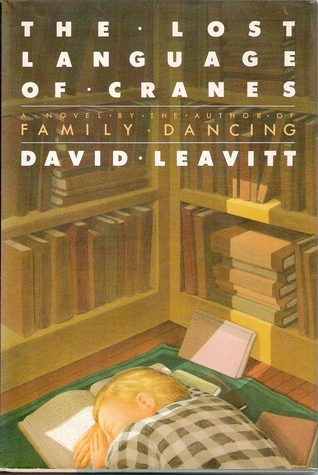
I was pleasantly surprised at how well written this book was, especially considering it was Mendicino’s first novel. The plot sounded interesting enough: Andy Nocera, a married man in his late thirties, is arrested for having sex with another guy at an interstate rest stop. His life quickly goes downhill from that point. Besides the public shame and legal ramifications, he loses both his job and his wife. As the title suggests, the story traces his life during his one year probation period. This is Andy’s story and is told from his point of view. Over the course of his probation Andy must finally come to terms with accepting himself as a gay man, something he has struggled with since his early teens. We learn much about Andy’s back story through the effective use of flashback.
Probation is an excellent accounting of one man’s fall from grace and the difficult road he must take over the course of one year before he can achieve happiness and inner peace. Andy is neither a hero nor a villain. He is just one screwed-up guy trying to make some sense out of his life. The author has strong writing skills and delivers a story that is powerful and compelling. In addition to Andy the other primary characters are:
• Matt: the court-appointed counselor, psychiatrist as well as Jesuit priest. Matt is the perfect foil for Andy and plays an important role in getting Andy to accept himself.
• Alice: his ex-wife who despite everything that has happened still cares deeply about Andy.
• Andy’s mom who bails him out of jail, welcomes him into her home and provides him important emotional support.
Some of the comments others have made about this book frankly annoy me. Apparently some people found Andy whiny, self-righteous, irritating and pathetic. One person commented “If you’re dissatisfied then change your life and stop whining. He seemed to ‘enjoy’ being miserable, drinking and smoking himself into a stupor.” Really? I could not disagree more strongly. The story as I recall takes place in North Carolina in the early 90’s, not exactly the cradle of love your gay neighbor. To apply a mindset of Will and Grace, Modern Family and Marriage Equality to Andy’s time and place as I suspect many Generation Xers and Millennials do is preposterous. Even in 2014 there is enormous societal pressure to think and act straight. Andy grew up in an environment that told him he was sick and disgusting for his sexual urges and behavior and he should probably be beaten to a pulp like Matthew Shepherd was. As a result he is self-loathing and resorts to drinking heavily to mask the pain he is feeling. “Don’t judge me till you have walked a mile in my shoes” seems an apt way of describing his situation. That is why I can and apparently others cannot understand his anguish, self-hatred and suffering.
Like Andy I too was once married, trying to live the Leave it To Beaver existence society had pressured me into believing I needed to pursue to achieve happiness. Even though I had known since my early teens that guys and not gals was what aroused me, I struggled with my feelings, living a lie, trying to convince myself and others I was something I wasn’t. Only when I reached the age of thirty and my marriage started to crumble did I face my demons. Fortunately I was not caught at a public restroom having sex, although at the time the prospect of engaging in such activity did cross my mind on more than one occasion. Living in the closet is a bleak and heavy burden to bear. Like Andy when I allowed myself to accept me for who and what I was, it was quite liberating.
This is not an easy story to read but one that is gripping, believable and very satisfying. It is not your usual M/M romance story. Rather it is the saga of a middle-aged man who happens to be gay though not willing to acknowledge it, and what happens to him after getting caught going down on another guy at a rest stop. The work was a Lambda Literary Award Nominee for Gay Debut Fiction in 2011. All-in-all this was a very rewarding novel.








